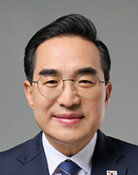Honor students agony
Yi Yi with penname Yulgok (1536-1584), a great thinker from the Joseon Dynasty, was famous as a gifted child since young. According to a critical biography on Yulgok Yi Yi published recently, Yi was born to a reputable family, and gained education from a mother who was highly skilled in poetry and painting. Nevertheless, the young Yi Yi was fraught with a host of complexes. After losing her mother at age 16, he ran away from home, and served as Buddhist monk for one year. Prof. Han Yeong-woo of Seoul National University, who authored the biography, says, Yi Yi seemed to have so deep psychological conflict that he even considered committing suicide, but he wisely overcame such meander and agony to become a truly great hero.
Kwon Yul, a Korean American who was the first Asian American to win in the popular realty TV show Survival, has outstanding educational background and career. After graduating from Stanford University and Yale law school, he served as legislative advisor for a U.S. congressman, and probationary judicial officer, and worked with McKinsey & Company and Google. In an interview, he confessed, I was a loser. I was always worried if I would disappoint my teacher, and be bashed by my friends.
Despite their distinguished academic performance at school, honor students apparently have complex and pain that even their families are hardly aware of. A number of exemplary students who are nicknamed sons who are envy of others have committed suicide in Korean society in recent years. After a senior high school student killed himself in Seouls upscale Daechi neighborhood, a student who topped in academic performance at a prestigious high school in a provincial region committed suicide after leaving a suicide note, reading, My brain is gnawing at my heart, which I can no longer stand. They are believed to have committed suicide because of excellence complex, or deep obsession to always stay atop at school.
What would be factors that cause the biggest burden on those teenagers who are complimented at homes and schools? In a Dong-A Ilbo survey of 100 high school students who make the list of highest 10 percent in academic performance, expectation of people around them" topped with 41 percent. This means that Korean teenagers are highly wary of other peoples perception toward them from quite a young age. A society where people seek to always compare themselves with others in GPAs or physical appearance, or to gain others recognition for their value cannot be called a "healthy society." We must teach our children courage to do what they want, rather than following others expectation on them, and courage for self-revival, with which they start anew on the brink of a cliff.
Editorial Writer Koh Mi-seok (mskoh119@donga.com)





![[단독]“거부도 못해” 요양병원 ‘콧줄 환자’ 8만명](https://dimg.donga.com/c/138/175/90/1/wps/NEWS/IMAGE/2026/03/02/133450041.2.jpg)

